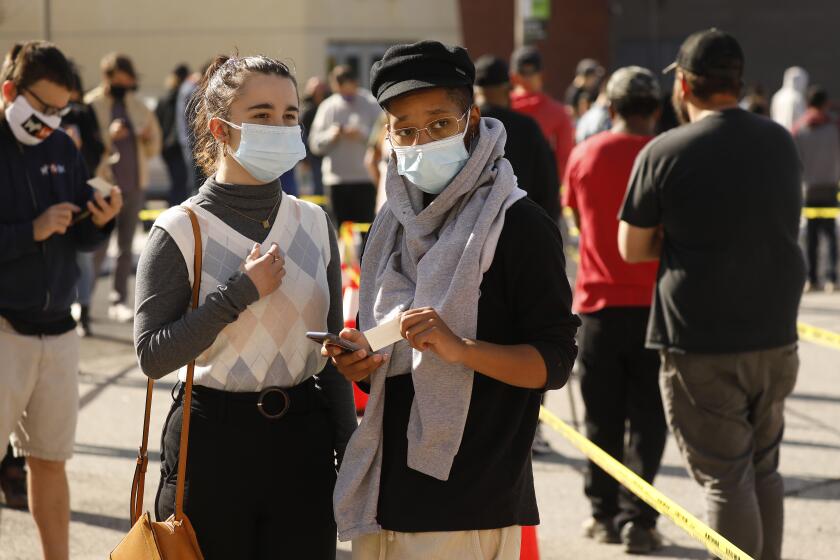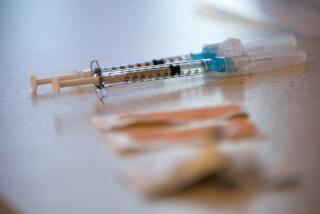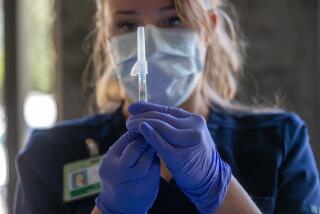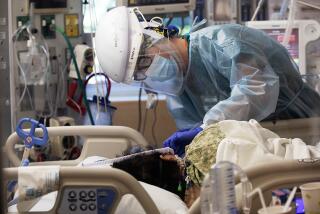San Francisco to require staff in hospitals, jails and nursing homes to get COVID-19 vaccine

- Share via
SAN FRANCISCO — San Francisco will eventually require workers in hospitals, nursing homes and jails to be fully vaccinated against COVID-19, with limited exceptions.
The order is notable as some companies have internally debated whether to impose vaccination requirements for workers.
Many companies have generally avoided requiring workers to be vaccinated. But the University of California and California State University systems have announced they will eventually require COVID-19 vaccinations for all students, faculty and staff on campus properties.
Dozens of colleges nationwide also have announced they will require vaccination for enrollment this fall, including Yale, Princeton, Columbia and, in Los Angeles County, Pomona and Claremont McKenna.
The order by San Francisco, as well as the UC and Cal State systems, will go into effect only after the U.S. Food and Drug Administration gives formal approval to one of the vaccines. Currently, all three vaccines being distributed in the U.S. have received “emergency use authorization.”
Health experts expect full approval of at least one of the vaccines by fall.
San Francisco’s order, like the one issued by UC and Cal State, would allow for workers in “high-risk settings” to seek an exemption based on medical or religious grounds. High-risk settings are defined in San Francisco’s order as those that involve many people where vulnerable individuals reside out of necessity and where risk of coronavirus transmission is high.
Besides acute-care hospitals and skilled nursing facilities, such high-risk settings include jails, residential care facilities for older people and homeless shelters.
The directive is the largest of its kind in U.S. higher education and would likely take effect this fall after the FDA formally approves the vaccines.
Once the FDA fully approves any COVID-19 vaccine, San Francisco will require that all businesses and government agencies with workers in high-risk settings find out the vaccination status of all workers who routinely work on-site and ensure that they are fully vaccinated within 10 weeks of official vaccine approval.
Workers can request an exemption based on religious beliefs or if they have a qualifying medical reason. Medical exemptions require a written letter stating the patient qualifies for the exemption and is signed by a physician, nurse practitioner or other licensed medical professional.
Those who receive an exemption must wear a face covering — such as an N95 mask, a tight-fitting respirator that filters out small particles in the air — at all times at work, unless they are eating or drinking, and get tested for the coronavirus at least once a week.
Times staff writers Nina Agrawal, Teresa Watanabe and Colleen Shalby contributed to this report.
More to Read
Sign up for Essential California
The most important California stories and recommendations in your inbox every morning.
You may occasionally receive promotional content from the Los Angeles Times.












